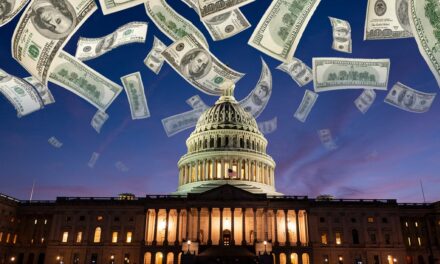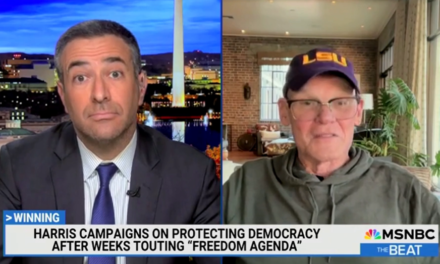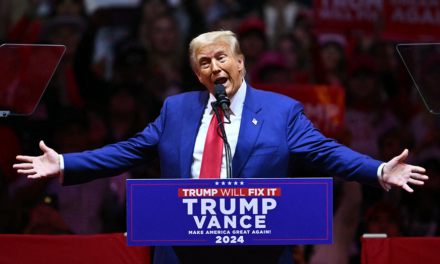In an increasingly polarized political environment, a local National Public Radio (NPR) CEO has stepped forward to voice serious concerns over a directive from the Trump administration that could potentially jeopardize funding for public radio stations. This development has critics on edge, as it raises questions about the future of independent journalism and the availability of diverse media voices in the United States.
The executive, who leads a regional NPR affiliate known for its commitment to local news coverage, expressed alarm at the implications of the order which seeks to revise funding mechanisms for public broadcasting. This directive aligns with the administration’s efforts to cut federal funding across various sectors, a trend that has alarmed supporters of public media, particularly in a time when reliable news sources are more critical than ever.
Public broadcasting plays a vital role in American journalism by providing unbiased news and educational programming that is accessible to the general public. However, in recent years, these services have faced mounting pressure from varying political factions, all of which have influenced discussions regarding their funding and operational autonomy.
“The potential cuts to public broadcasting are concerning for several reasons,” the NPR CEO stated during a recent interview. “We provide important local news that isn’t always covered by commercial businesses, and we play a crucial role in holding power to account. Cutting our funding could lead to a significant decrease in the quality and quantity of local journalism, which ultimately affects democracy.”
According to the CEO, public radio not only serves as a trusted news source but also provides a platform for underrepresented communities and issues that often go unreported in mainstream media. The organization’s audience is particularly concerned about the implications of the administration’s move as it seeks to shore up its funding for public service initiatives amid escalating national tensions.
The Trump administration’s actions have sparked a wider debate around the importance of public broadcasting. Critics argue that nonprofit news organizations like NPR serve critical functions that extend far beyond mere entertainment or cultural programming; they are instrumental in educating the public, offering critical insights during elections, and presenting in-depth analyses of pressing national and local issues.
Several studies have shown that when local journalism suffers, communities are impacted significantly—the lack of coverage in local news can lead to increased misinformation, decreased civic engagement, and a fragmentation of the public discourse. With these realities in mind, public broadcasters argue that the government’s financial support is not merely a budgetary concern but a matter of civic responsibility.
The NPR CEO highlighted the essential need for a diversified funding model to mitigate risks posed by federal cuts. This would entail strengthening relationships with local businesses, individual donors, and philanthropic organizations, as well as exploring new revenue-generating strategies that align with the station’s values, such as community events and educational programming.
In response to the directive, NPR has launched a concerted public campaign designed to rally support from listeners, community leaders, and stakeholders. Their push aims to raise awareness about the significance of public funding and encourage citizens to express their opinions on the critical role public broadcasting plays in society.
Through a series of call-to-action initiatives, NPR affiliates are reaching out to their listeners, urging them to contact their representatives to voice their support for continued funding of public media. Community forums and town halls are also being organized to facilitate discussions around local media needs and the role of public broadcasting in delivering relevant information to citizens.
The local NPR CEO emphasized that the goal of these initiatives is to rekindle public dialogue about the value of independent journalism. “We aim to ignite conversations that elevate understanding of public broadcasting’s impact on our daily lives,” the CEO remarked. “Public support is essential not just for our station, but for the integrity of the information ecosystem as a whole.”
As public attention on media funding continues to grow, concerns remain regarding the potential implications for other public broadcasting entities across the country. Many regional public radio stations rely heavily on federal Corporation for Public Broadcasting (CPB) grants to sustain their operations, and any cuts at the federal level could trigger a ripple effect that diminishes programming nationwide.
Advocates for public media continue to stress the importance of these organizations in challenging times. In a media landscape dominated by corporate interests and social media sensationalism, public broadcasting remains a bedrock for facts and journalism that audiences trust. The perceived threats posed by governmental changes only serve to heighten the urgency of advocating for sustainable funding models for public stations across the U.S.
The local NPR CEO’s advocacy is not isolated; it reflects a nationwide movement where public media leaders are increasingly vocal about the need for equitable support. They argue that the sustainability of journalism does not solely rest within the parameters of political convenience, but rather as an essential service that should be safeguarded against shifts in political priorities.
Faced with systemic threats from various angles, public media is called to adapt and innovate. Enhancing community engagement and diversifying funding sources are crucial steps in fortifying these organizations against future challenges. As important as governmental support is, it may no longer be sufficient on its own, necessitating a shift towards collaborative relationships with local communities and listeners.
“We must take proactive steps to ensure that public broadcasting remains a vital source for truth and understanding,” the CEO concluded during the interview. “This is not just a fight for funding; it’s a fight for the very essence of our democracy, which relies on an informed electorate capable of making sound decisions.”
As the future of public broadcasting hangs in the balance amid political shifts, the stakes remain profound. Whether or not the administration’s plans move forward, one thing is clear: the resolve to shape a resilient and robust public media landscape is growing amongst advocates who recognize its fundamental role in sustaining an informed society. With grassroots support and unified action, the hope for preserving and promoting the essential tenets of public broadcasting lives on.































